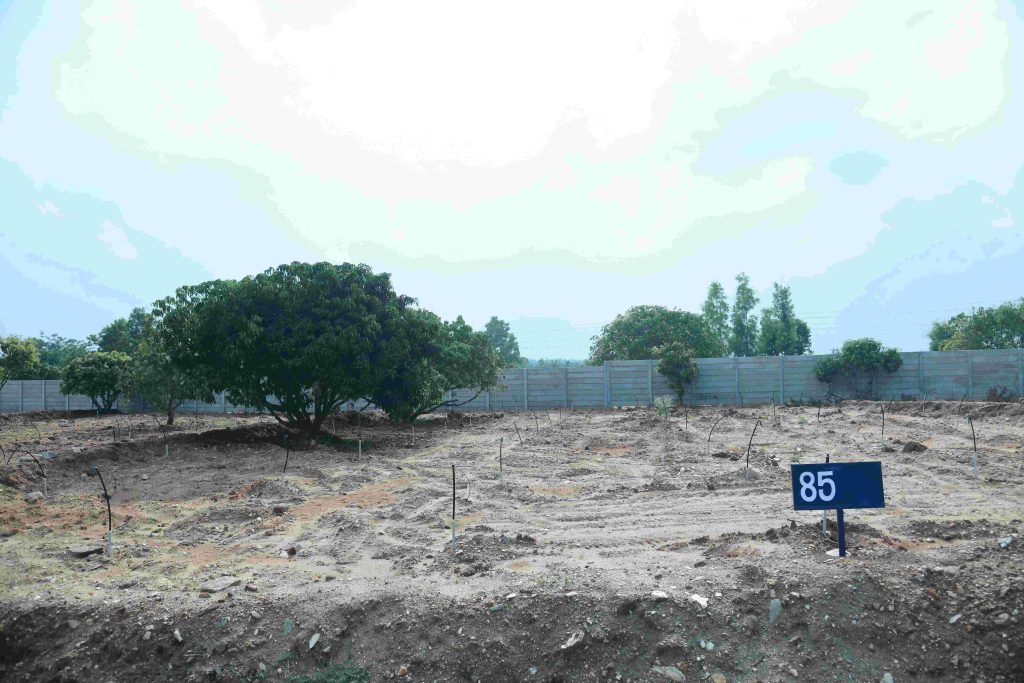
The cornerstone of any successful agricultural operation is often overlooked but essential – the condition of the soil. “Soil health” is a key consideration for agricultural organizations focused on sustainable crop and livestock production, as well as effective land management. Although awareness of soil health is growing, it is vital to grasp what it involves, how to maintain it, methods of assessment, and its significance for the sustainable functioning of the ecosystem supported by soils. Sharanya farm, well-managed farmland near Mysore Road, is where our specialists employ effective farming techniques to preserve soil health. This article will explore the significance of preserving soil health on managed farmland, highlighting the advantages and sustainable methods that promote a flourishing agricultural environment.
The ability of soil to hold water is impacted by its overall health. When soil is well-structured, it can effectively retain water and minimize runoff, which helps prevent erosion and supports water conservation. This is an important aspect of sustainable farming practices.
A variety of life forms, ranging from tiny bacteria to earthworms and insects, thrives in fertile soil. This diversity plays a crucial role in maintaining a harmonious environment, supporting natural pest management, enhancing pollination, and increasing the ability to withstand shifts in the surroundings.
Encouraging Sustainable Soil Health through Cover Crops:
Utilizing cover crops is essential for promoting sustainable soil practices. These crops introduce beneficial soil organisms and increase organic matter content, improving nutrient absorption and drainage in the soil. By planting cover crops during fallow periods, soil erosion can be minimized, organic matter content can be enhanced, and a habitat for beneficial soil organisms can be created. Cover crops are planted to offer green manure or ground cover between cash crops, providing numerous benefits for soil health.
Crop rotation involves planting different crops in succession to disrupt pest and disease patterns, enhance nutrient circulation, and lower the likelihood of soilborne diseases. Soil quality is influenced by factors like parent material, topography, and climate, with crop rotation playing a significant role in maintaining soil health and quality.
Incorporating organic materials like compost or manure consistently enhances the quality of soil by improving its structure, ability to retain water, and availability of nutrients, thereby supporting the health of the soil as a whole.
Introducing intercropping practices in farming enhances variety and relationships among plants, animals, birds, and microorganisms, leading to a more resilient crop environment and better utilization of resources like space, sunlight, water, and nutrients. Additionally, soil quality improves through greater ground coverage with live plants, reducing erosion, and enhancing soil fauna with increased root exudates.
Increasing the number of trees planted on farmland can improve soil health. Trees and forests are vital for supplying oxygen and creating an ecosystem that supports agricultural productivity. Regions with ample tree coverage are better protected against soil erosion and drought. If you are seeking well-maintained farmland nearby, consider Sharanya Farm. Mature tree roots help enhance water retention by penetrating deep into the soil. Planting additional trees in less fertile areas of your farm is a wise strategy.
Summary
The foundation of sustainable agriculture lies in the health of the soil. By prioritizing soil health in managed farmland, farmers and land managers can adopt practices that promote both short-term productivity and long-term resilience. By nurturing the soil, we are not only ensuring the prosperity of our agricultural systems but also cultivating a legacy of environmental stewardship and a thriving agricultural landscape for the future.
At Sharanya farms, we understand that thriving soil is essential to the longevity and prosperity of our agriculture and environment. If you’re searching for the best farmland for sale near me in Bangalore, look no further. Our land offers farmers the opportunity to boost their yields, minimize their environmental impact, and preserve fertile soil for future generations. As the significance of soil health becomes increasingly recognized, farmers are seeking innovative methods to support it. We believe local agriculture must adopt and implement new practices that ensure the long-term success of our farmland. By prioritizing soil health, we can ensure the sustainability and profitability of our farms while protecting the environment. Reach out to us to learn more about our farm.